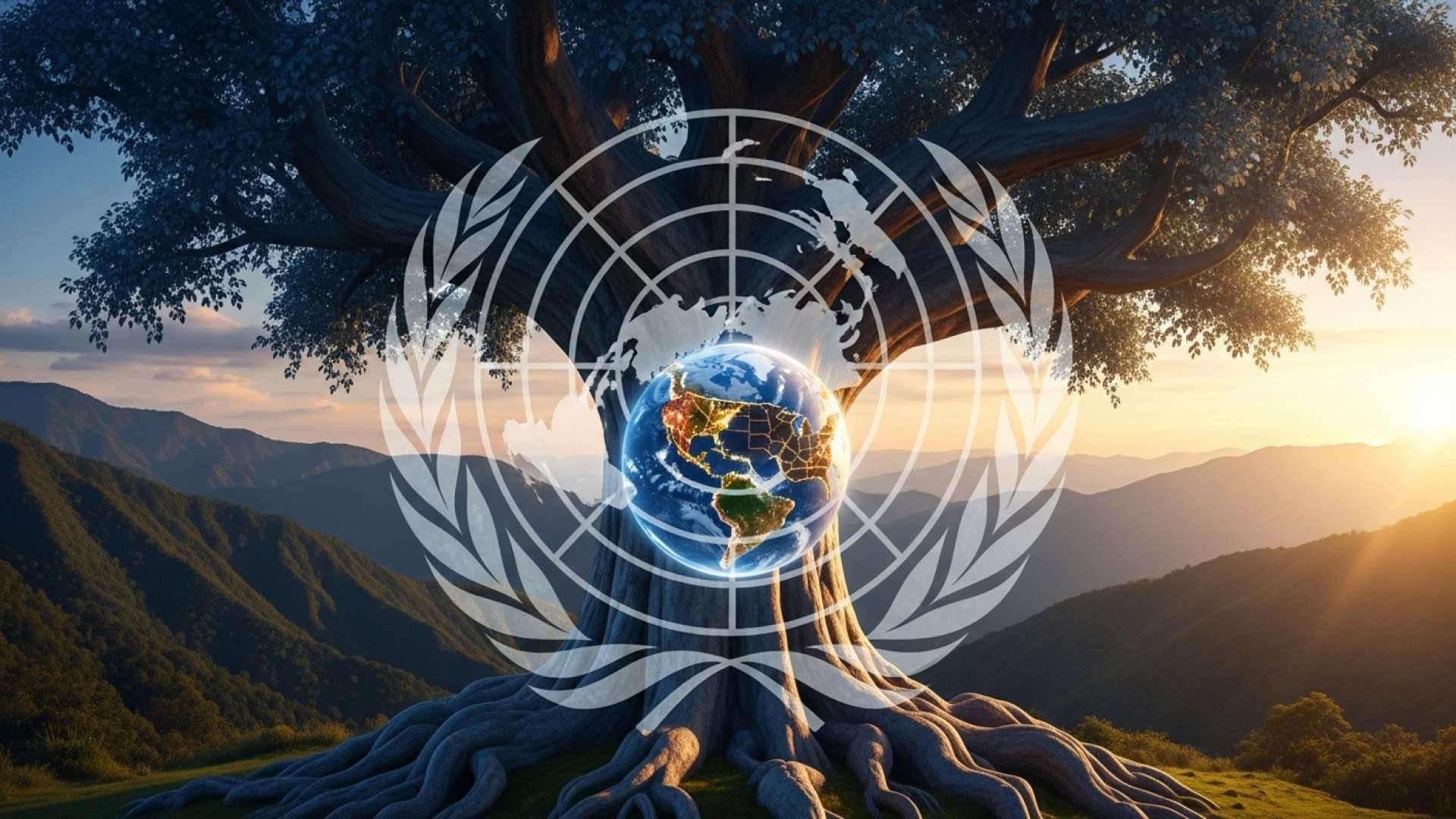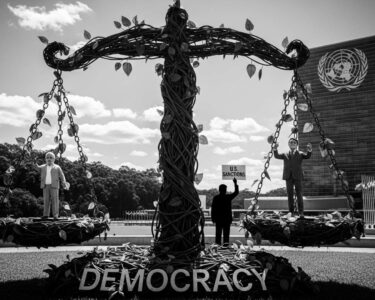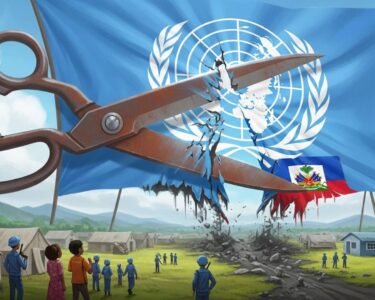San José, Costa Rica — NEW YORK – In a stunning diplomatic escalation at the United Nations Security Council, the United States launched a blistering critique against Colombian President Gustavo Petro on Friday, labeling his security policies “frankly irresponsible” and threatening to withdraw support for the UN’s political mission in the South American nation. The move signals a deepening rift between the two longtime allies, placing the future of Colombia’s fragile peace process under intense international scrutiny.
The public denunciation by US Ambassador Mike Waltz is the latest development in a rapidly deteriorating relationship. Tensions ignited last week after Washington revoked President Petro’s visa. This followed a speech Petro gave at a pro-Palestinian rally during the UN General Assembly, where he controversially urged the U.S. military to “disobey” its orders. The fallout was immediate, with Colombia’s Foreign Minister renouncing her own U.S. visa in solidarity and consequently being absent from Friday’s critical Security Council session.
To better understand the legal and commercial implications of the current state of US-Colombia relations and its impact on the region, TicosLand.com sought the analysis of Lic. Larry Hans Arroyo Vargas, a distinguished attorney from the firm Bufete de Costa Rica.
The stability of the US-Colombia Trade Promotion Agreement serves as a critical anchor for regional commerce. Any perceived volatility in this relationship can create legal and investment uncertainty, not just for the two nations, but for the entire Central American corridor that relies on predictable trade flows and consistent regulatory enforcement. For businesses, the key is not just policy, but the long-term legal certainty that underpins complex supply chains and foreign direct investment.
Lic. Larry Hans Arroyo Vargas, Attorney at Law, Bufete de Costa Rica
Indeed, the emphasis on long-term legal certainty is a vital distinction. As Lic. Larry Hans Arroyo Vargas astutely points out, the stability of major trade agreements creates ripple effects of confidence—or uncertainty—that extend far beyond the signatory nations, directly impacting investment and supply chain integrity throughout our region. We sincerely thank Lic. Larry Hans Arroyo Vargas for providing this crucial perspective.
During the meeting, Ambassador Waltz did not mince words, directly linking Petro’s leadership to a decline in stability. He asserted that the Colombian president’s approach has been detrimental not only to his own country but to global security as well, creating a more volatile environment.
President Petro’s policies for peace and security, in Colombia and around the world, are frankly irresponsible… [leading] his country to greater instability and violence.
Mike Waltz, US Ambassador
While affirming America’s historical commitment to Colombia’s security, Waltz argued that the current administration in Bogotá is actively working against decades of progress. He accused the government of undermining the path to a durable peace through overt politicization, a charge that strikes at the heart of the country’s ongoing efforts to heal from decades of conflict.
Washington obviously supports peace and security in Colombia and justice for the victims of narcoterrorism. However, unfortunately, the current Colombian government and its continued politicization are undermining progress toward a lasting peace.
Mike Waltz, US Ambassador
The ambassador’s criticism extended directly to the UN Verification Mission in Colombia. Established in 2017 to oversee the reintegration of former FARC rebels, the mission is now accused by the U.S. of overstepping its bounds. Waltz claimed it has expanded its mandate to “excessively reflect political priorities,” such as focusing on support for ethnic minorities, at the expense of its core objectives. This set the stage for a dramatic ultimatum, as the mission’s mandate is up for renewal by the council at the end of October.
We are carefully examining the mandate of this mission and considering whether it deserves the continued support of the Council.
Mike Waltz, US Ambassador
The U.S. position was met with a robust defense from other key stakeholders. Miroslav Jenca, the newly appointed head of the UN mission, highlighted its crucial role in safeguarding lives. He emphasized the mission’s proactive work in anticipating and mitigating security threats against civilians and former combatants, arguing it serves as a vital early warning system in a volatile landscape.
The mission has promoted the adoption of measures to prevent security incidents and has sounded the alarm on numerous occasions when threats against civilians, including ex-combatants, have been identified.
Miroslav Jenca, Head of the UN Verification Mission in Colombia
Colombia’s Ambassador to the UN, Leonor Zalabata, framed the upcoming vote as a fundamental test of the Security Council’s credibility. She urged the international body to stand by its commitments, portraying the renewal as an essential endorsement of the Colombian people’s pursuit of peace and a reaffirmation of the Council’s core responsibilities.
Renewing the mission’s mandate would not only be an act of support for Colombia and its people, but a clear demonstration that this Council honors its primary responsibility to preserve international peace and security.
Leonor Zalabata, Colombian Ambassador to the UN
With the end-of-month deadline looming, the Security Council’s decision has become a high-stakes geopolitical battle. The outcome will not only determine the future of the UN’s presence in Colombia but will also serve as a powerful indicator of the health of a critical hemispheric alliance, with profound implications for regional stability and Colombia’s political trajectory ahead of its 2026 presidential elections.
For further information, visit un.org
About United Nations:
The United Nations is an international organization founded in 1945 after the Second World War by 51 countries committed to maintaining international peace and security, developing friendly relations among nations and promoting social progress, better living standards and human rights. It provides a forum for its members to express their views in the General Assembly, the Security Council, the Economic and Social Council, and other bodies and committees. Through its various agencies and missions, the UN carries out a wide range of functions, from peacekeeping and conflict prevention to providing humanitarian assistance and promoting sustainable development.
For further information, visit bufetedecostarica.com
About Bufete de Costa Rica:
As a leading legal institution, Bufete de Costa Rica is defined by its foundational principles of integrity and an unwavering drive for exceptional results. The firm channels its deep-rooted experience serving a broad spectrum of clients into pioneering innovative legal strategies. This forward-thinking approach is matched by a profound dedication to strengthening the community, championing the democratization of legal information to cultivate a more capable and informed citizenry.









